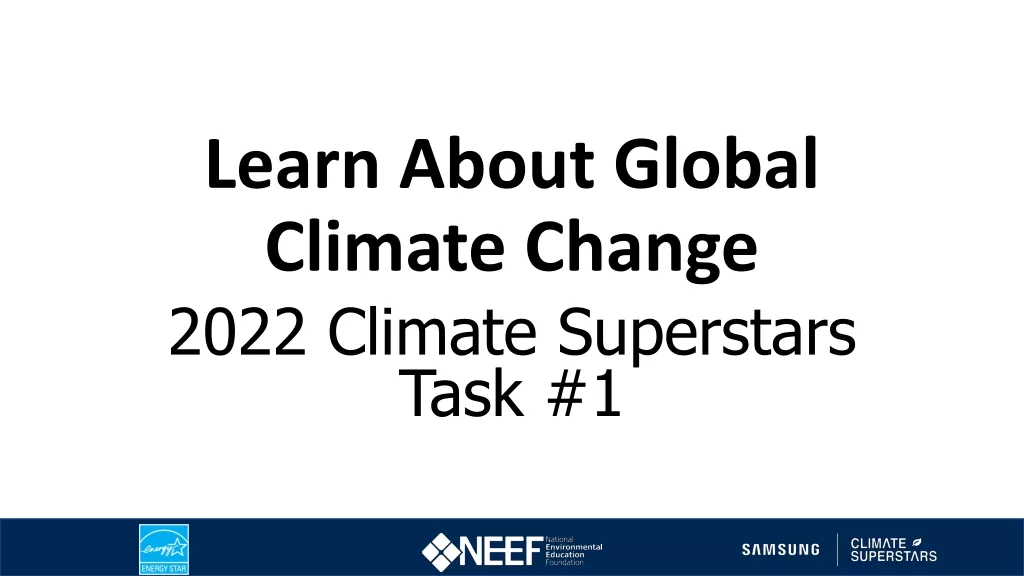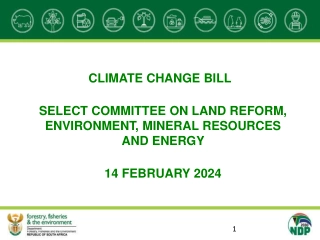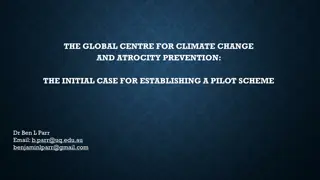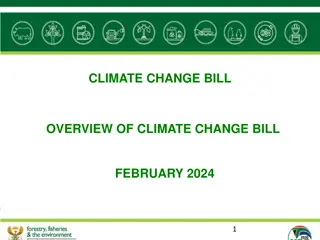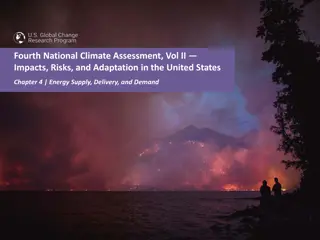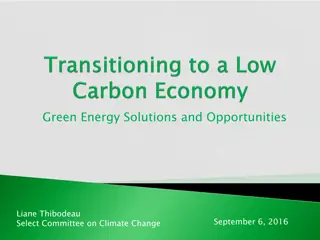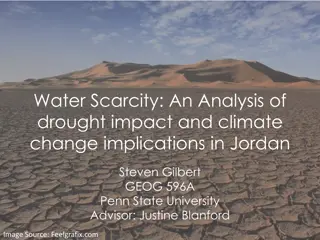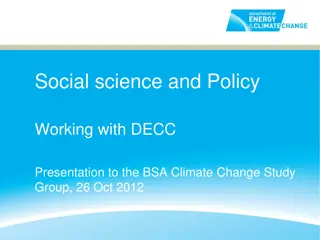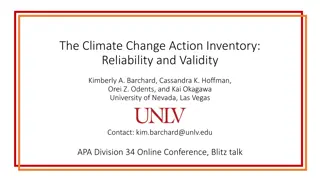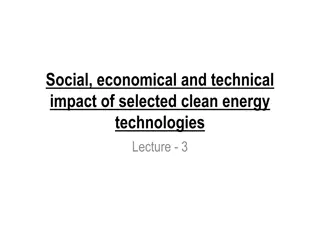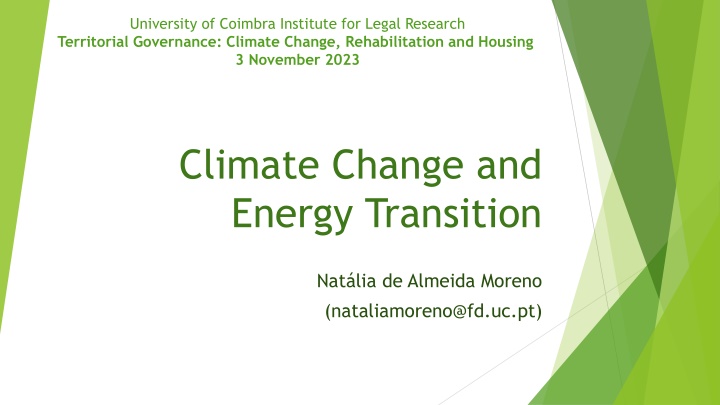
Addressing Climate Change and Energy Transition: Multilevel Governance Approach
Explore the complexities of anthropogenic climate change, the shared responsibilities under the CBDR-RC framework, and the EU's initiatives towards a sustainable energy transition. Learn how multilevel governance can enhance mitigation efforts and drive policy coherence at local, national, and global levels.
Download Presentation

Please find below an Image/Link to download the presentation.
The content on the website is provided AS IS for your information and personal use only. It may not be sold, licensed, or shared on other websites without obtaining consent from the author. If you encounter any issues during the download, it is possible that the publisher has removed the file from their server.
You are allowed to download the files provided on this website for personal or commercial use, subject to the condition that they are used lawfully. All files are the property of their respective owners.
The content on the website is provided AS IS for your information and personal use only. It may not be sold, licensed, or shared on other websites without obtaining consent from the author.
E N D
Presentation Transcript
University of Coimbra Institute for Legal Research Territorial Governance: Climate Change, Rehabilitation and Housing 3 November 2023 Climate Change and Energy Transition Nat lia de Almeida Moreno (nataliamoreno@fd.uc.pt)
Antropogenic Climate Change Multiple different C&E - multilevel complex problem - global commons, super wicked problem Immediate, rapid and large-scale responses - tipping points and poinf of no return Shared responsibility - Responsibilities and Respective Capabilities (CBDR RC) Common but Differentiated Climate change is a global commons problem that implies the need for international cooperation in tandem with local, national, and regional policies on many distinct matters. Because the GHG emissions of any agent (individual, company, country) affect every other agent, an effective outcome will not be achieved if individual agents advance their interests independently of others (IPCC, Climate Change 2014: Mitigation of Climate Change. Contribution of Working Group III to the 5th Assessment Report) When multiple actors national, regional, and urban policymakers, as well as nonstate actors and civil society work together to exploit the opportunities, it leads to the most impactful mitigation gains ; therefore, [m]ultilevel and polycentric governance is essential for implementing sufficiency, energy efficiency and renewable energies policies (IPCC, Climate Change 2022: Mitigation of Climate Change. Contribution of Working Group III to the 6th Assessment Report)
2015 Paris Agreement - EU 1st NDC (40% by 2030) - EU 2nd and enhanced NDC (55% by 2030) - 2020 Green Deal Regulation (EU) 2018/199 - Governance of the Energy Union and Climate Action + Regulation (EU) 2021/1119 - The European Climate Law - Fit for 55 (2021 onwards) + REPowerEU New EED (Directive (EU) 2023/1791)- in force - goal of consuming at least 11.7% less energy by 2030 compared to the projected energy use for 2030 (based on the (https://energy.ec.europa.eu/topics/energy-efficiency/energy-efficiency-targets-directive-and- rules/energy-efficiency-targets_en) 2020 reference scenario) Recital 15 : [E]nergy efficiency is to be treated as an energy source in its own right. The energy efficiency first principle is an overarching principle that should be taken into account across all sectors, going beyond the energy system, at all levels, including in the financial sector - Article 3 New RED (pending publication) - raise the share of renewable energy in the EU s overall energy consumption to 42.5% by 2030 with an additional 2.5% indicative top up to allow the target of 45% to be achieved (https://www.consilium.europa.eu/en/press/press- releases/2023/10/09/renewable-energy-council-adopts-new-rules/)
Just and equitable energy transition Democractic, participatory Wahlund, M., & Palm, J. (2022). The role of energy democracy and energy citizenship for participatory energy transitions: A comprehensive review. Energy Research & Social Science, 87
Democratisation (i) Citizens Panels, Assemblies, Councils - ad hoc, permanent, both E.g., Citizens Panel on Edmonton s Energy and Climate Challenges; Walloni Citizen Panel for the Climate; Conselho de Cidad os de Lisboa; Conseil Citoyen Permanent de Saint-Gilles; Ostbelgien Model (ii) Remunicipalisation More than 1.500 cases worldwide since 2000 (Cumbers, Andrew, et al., Mapping Remunicipalisation: emergente trends in the global de-privatisation process, University of Glasgow, 2022 (https://pop-umbrella.s3.amazonaws.com/uploads/b4cf0721-7bbd-411e-95d1- 1c9579ce6edc_GLOBAL_MAPPING_SUMMARY_APRIL_2022.pdf) Paradigmatically, energy sectors in Germany (see, e.g., Becker, S., Our City, Our Grid: The energy remunicipalisation trend in Germany, in Reclaiming Public Services: How cities and citizens are turning back privatisation, 2017, pp. 118 13; Berlo, K. et al.,Remunicipalisation as an Instrument for Local Climate Strategies in Germany: The Conditions of the Legal Energy Framework as an Obstacle for the Local Energy Transition, Renewable Energy Law and Policy Review, 7(2), 2016, pp. 113 21; Ilkhani, D. & Woertz, E., Remunicipalisation of Local Energy Provision: The Role of Cities and Bottom-up Initiatives, Barcelona Centre for International Affairs - CIDOB Policy Brief, 20, 2019, pp. 1-6; Wagner, O. & Berlo, K., Remunicipalisation and Foundation of Municipal Utilities in the German Energy Sector: Details about Newly Established Enterprises, Journal of Sustainable Development of Energy, Water and Environment Systems, 5(3), 2017, pp. 396-407)
Direct participation - Produce - Store - Self-consume (either individually or collectively) - Sell/trade [e.g., P2P trading, organised electricity markets either directly (*minimum bid sizes of 500 kW for trading in day-ahead and intraday markets) or indirectly (*independent aggregators)] - Demand response (implicit and explicit) - Participate in energy efficiency schemes - Ancillary services - Participate in and (effectively) control energy communities [Renewable Energy Community (REC) and Citizen Energy Community (CEC)
Citizenship (i) Energy Literacy E.g., Art. 18/6 RED II 6. Member States, where appropriate with the participation of local and regional authorities, shall develop suitable information, awareness- raising, guidance or training programmes in order to inform citizens of how to exercise their rights as active customers, and of the benefits and practicalities, including technical and financial aspects, of developing and using energy from renewable sources, including by renewables self-consumption or in the framework of renewable energy communities (ii) Access E.g., to funding and financing, programmes and projects, to the grid, enabling technologies (iii) Effective control, self- and co-governance - Commons (OSTROM) - Jointly acting final costumers - Typically, energy communities (REC and CEC)

